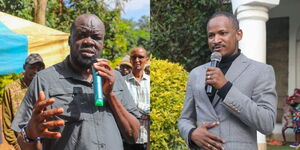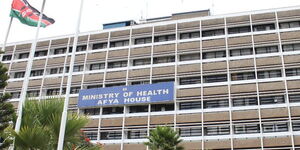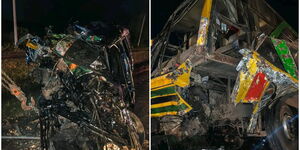Universities and other institutions of higher learning may soon start sharing academic papers with the general public if a bill proposed by Mandera South MP Abdul Haro sails through.
The Universities Amendment (no.2) 2023, aims to establish digital databases in all educational institutions to maintain records of conferred certificates.
With this bill, Haro envisions a future where the authenticity of papers from each institution can be digitally verified by the public.
"Shall provide a database that is digital and that allows a person to access and ascertain the authenticity of the academic papers acquired from such university subject to the Data Protection Act," reads part of the proposed bill.
Additionally, the legislator aims to alleviate the burdensome journeys that many Kenyans undertake to personally validate their academic credentials at higher education institutions.
"The online digital certificates will come in handy during frequent university strikes, elections, and epidemics," the MP added
Furthermore, he clarified that the proposed bill will fully respect the fundamental freedoms safeguarded by the Constitution, ensuring that no infringement occurs.
Abdul Haro further emphasised that the implementation of this bill is unlikely to result in any supplementary allocation of public funds.
The proposed law is expected to streamline the process for employers to authenticate the educational qualifications of prospective hires weeding out job seekers who cut corners to secure employment.
In the past, the Ethics Anti-Corruption Commission (EACC) has specifically brought attention to instances of job seekers falsifying academic certificates, prompting a call for increased vigilance among employers.
"Any university or other learning institution that may be engaged in collusion to issue academic certificates to unqualified persons, including individuals who have not undertaken or completed studies should desist from doing so and strictly adhere to prescribed standards," the commission revealed in a statement.
EACC also exposed a range of tactics employed by individuals in Kenya to forge certificates. These strategies involve tampering with grades and distinctions, all with the intent of bolstering their appeal in the highly competitive job market.












